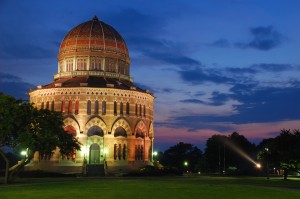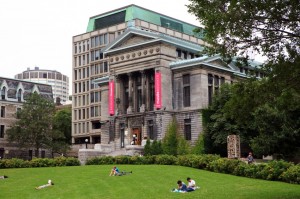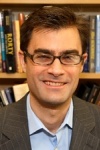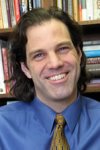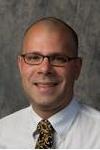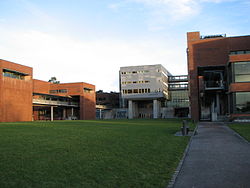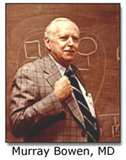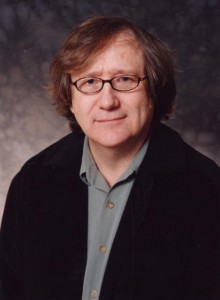 The first International Congress on Ecstatic Naturalism was held at Drew University on April 1-2, 2011. Organized by Robert Corrington (pictured at right), this inaugural edition of what will hopefully be an annual event offered an opportunity to celebrate Corrington and his influential ecstatic naturalist writings.
The first International Congress on Ecstatic Naturalism was held at Drew University on April 1-2, 2011. Organized by Robert Corrington (pictured at right), this inaugural edition of what will hopefully be an annual event offered an opportunity to celebrate Corrington and his influential ecstatic naturalist writings.
The highlight of the conference was an evening lecture by Corrington, in which he read the latest version of his unfolding categorial scheme. In dramatic fashion that called to mind Wittgensteinian’s Tractatus Logico Philosophicus, the presentation took the form of reading numbered, nested propositions, moving through the various elements of his system. There was no introduction and no conclusion, just the scheme itself. A beautifully crafted dramatic event, it was a fitting celebration of Corrington’s systematic philosophical imagination.
The evening lecture by Corrington was preceded by Robert Neville’s insightful introduction to Corrington’s life and thought. The preceding afternoon and the morning after the central evening events involved the presentation of a dozen papers, mostly by students and colleagues of Corrington. This display indirectly demonstrated the reach of Corrington’s influence.
An excellent micro-account of ecstatic naturalism is furnished on the web site for the congress. A key passage from that site furnishes a compact definition.
An ecstatic naturalism is a perspective that seeks to move toward an aesthetic phenomenology of nature’s “sacred folds”—special centers of numinous meaning and power that may be found throughout nature, where “nature” may be understood to mean an encompassing reality that has no other, there is no referent “for” nature nor any outside “to” nature. Nature is all that there is: nature is whatever is, in whatever way. From nature’s sacred folds emerges a fierce self-othering, nature naturing, where “it” moves ecstatically ejecting semiotically dense momenta. Nature naturing is the inexhaustible well of nature’s atemporal creating underconscious, “it” is the not-yet-in-time mode of preordinal expression. This preordinal expression manifests itself as created nature, a plane of immanence composed of innumerable orders, or nature natured. The plane of nature natured is not without access to its depth dimension however, and the creativity of the depth dimension does not necessarily evidence a telic plan, either. Nature naturing is not the unified will or intelligence of a supreme Being, and “it” is not the sacred, for there is no “whatness” to nature naturing, but only “its” “how.” Unlike other theological perspectives friendly to the tradition of naturalism (process thought, for example) an ecstatic naturalism denies that nature naturing molds nature natured simply into pleasing shapes. Melancholy, pain, and anguish are just as much to be accounted for in the aesthetic phenomenology that an ecstatic naturalism employs. For ecstatic naturalism, naturing naturing is “beyond good and evil” and “sustains the just and the unjust, beautiful and the demonic, the fragmented and the harmonious, the honorific and the detestable, the living and the dead (via effects) and the realms of the possible and the actual.”
From the ecstatic naturalist standpoint, as noted, the distinction between nature naturing and nature natured colors and specifies almost all aspects of, and possibilities for, human life. It indicates, among other things, that the unconscious is far more important, both religiously and philosophically, than has usually been acknowledged. While the conscious represents only one set of aspects of our relation with nature natured, the unconscious is our direct connection both to wider aspects of nature natured, and in certain respects, to the potencies that emerge from nature naturing. The conscious life is much more precarious than traditional monotheisms would allow, but also more magical than traditional naturalisms could recognize.
